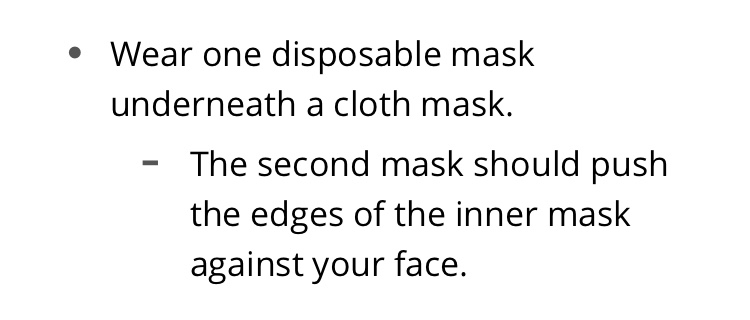

The manifold heresies of Antipope Bergoglio are a proofset of his not being the Vicar of Christ, not the cause of it.
The reason that Bergoglio the Heretic is not the pope has nothing to do with his heresy. His heresy is simply a visible sign, really a gift, so that all with eyes to see can plainly observe that this man does not enjoy any of the supernatural protection afforded by the Petrine Promises, and he never did. This is because Pope Benedict’s resignation was invalid in several points of Canon Law, and so Benedict remains the Vicar of Christ, and has been since April 2005.
Bergoglio the Heretic leading the faithful into error and toward Perdition on matters of faith and morals is something IMPOSSIBLE for a true Vicar of Christ. And no, it’s not just about proclamations carrying the full weight of Papal Infallibility. Christ promised Peter, and thus his successors, that his faith would not fail, and that whatever he bound and loosed on earth would be bound and loosed in Heaven. Peter is the decider, and he can’t be wrong on matters of faith and morals. This is also an amazing gift, yet it could not have been any other way. If you don’t have a decider, you have chaos.
The true Vicar of Christ is the Standard of Unity to the One Holy Catholic Apostolic Church. The Standard of Unity cannot also be the vector of schism. A true Vicar of Christ cannot schism the Church from himself. Which is a really good reason we ought to cling to the true Vicar at all costs, to remain in the Barque.
So the folks who maintain that Bergoglio is definitely the one true Vicar of Christ, yet spend all day resisting him, taunting him, saying and writing the most awful disobedient things about him… those folks have a real problem on their hands. Worse still are those who recognize the danger to souls Bergoglio represents, yet remain silent, or think there is nothing they can do. Many of them cannot be bothered to investigate what the hell is going on here, even those whose job it is to do so.
There is a certain podcast dropping tomorrow, 11 February, Feast of Our Lady of Lourdes. It’s also the eighth anniversary of Pope Benedict not renouncing the Vicarship of Christ. These topics are covered at length therein. Be sure to tune in, I will mirror it here.
On resisting the teachings and even mere opinions of the true Vicar of Christ, here are a few notable true Vicars of Christ to explain it better than I can:
“As regards opinion, whatever the Roman Pontiffs have hitherto taught, or shall hereafter teach, must be held with a firm grasp of mind, and, so often as occasion requires, must be openly professed.”
—Pope Leo XIII, Immortale Dei, n. 41, 1885
“The Church is the pillar and foundation of truth — all of which truth is taught by the Holy Spirit. Should the church be able to order, yield to, or permit those things which tend toward the destruction of souls and the disgrace and detriment of the sacrament instituted by Christ?”
—Pope Gregory XVI, Quo Graviora, n. 10, 1833
“It is not to be thought that what is set down in Encyclical Letters does not demand assent in itself, because in this the Popes do not exercise the supreme power of their magisterium. For, these matters are taught by the ordinary magisterium, regarding which the following is pertinent: ‘He who heareth you, heareth Me’ (Luke 10:16); and usually what is set forth and inculcated in the Encyclical Letters already pertains to Catholic doctrine. But if the Supreme Pontiffs in their acts, after due consideration, express an opinion on a hitherto controversial matter, it is clear to all that this matter, according to the mind and the will of the same Pontiffs, cannot any longer be considered a question of free discussion among the theologians.”
—Pope Pius XII Humani Generis 1950
“…we are bound to believe and what we are obliged to do, are laid down, as we have stated, by the Church using her divine right, and in the Church by the supreme Pontiff. Wherefore it belongs to the Pope to judge authoritatively what things the sacred oracles contain, as well as what doctrines are in harmony, and what in disagreement, with them; and also, for the same reason, to show forth what things are to be accepted as right, and what to be rejected as worthless; what it is necessary to do and what to avoid doing, in order to attain eternal salvation. For,otherwise, there would be no sure interpreter of the commands of God, nor would there be any safe guide showing man the way he should live.”
—Pope Leo XIII, Sapientiae Christianae, n. 24, 1890
“All who defend the faith should aim to implant deeply in your faithful people the virtues of piety, veneration, and respect for this supreme See of Peter. Let the faithful recall the fact that Peter, Prince of Apostles is alive here and rules in his successors, and that his office does not fail even in an unworthy heir. Let them recall that Christ the Lord placed the impregnable foundation of his Church on this See of Peter [Mt 16:18] and gave to Peter himself the keys of the kingdom of Heaven [Mt 16:19]. Christ then prayed that his faith would not fail, and commanded Peter to strengthen his brothers in the faith [Lk 22:32]. Consequently the successor of Peter, the Roman Pontiff, holds a primacy over the whole world and is the true Vicar of Christ, head of the whole Church and father and teacher of all Christians.
“Indeed one simple way to keep men professing Catholic truth is to maintain their communion with and obedience to the Roman Pontiff. For it is impossible for a man ever to reject any portion of the Catholic faith without abandoning the authority of the Roman Church. In this authority, the unalterable teaching office of this faith lives on. It was set up by the divine Redeemer and, consequently, the tradition from the Apostles has always been preserved. So it has been a common characteristic both of the ancient heretics and of the more recent Protestants — whose disunity in all their other tenets is so great — to attack the authority of the Apostolic See. But never at any time were they able by any artifice or exertion to make this See tolerate even a single one of their errors.”
Pope Pius IX Nostis et Nobiscum, 8 December 1849, nn. 16-17








